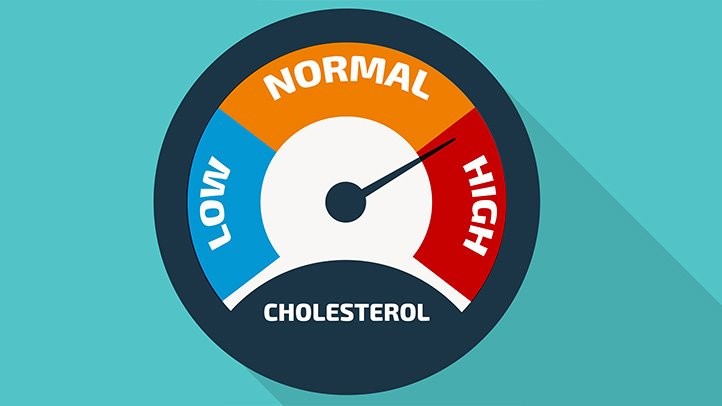Before we start getting to know bad effects of high cholesterol to the body, maybe many of us still wonder, what Cholesterol is?
Cholesterol is a waxy substance found naturally in the blood. Predominantly produced in the liver, but also found in foods such as red meat, high fat cheese, butter and eggs, Cholesterol is essential for maintaining good health and only becomes a problem when the level in your blood is too high.
Naturally our body already produces enough cholesterol, so any amount of cholesterol from food we eat will be redundant. Cholesterol is kind of fat waxy necessary to grow healthy cells. However, too much cholesterol can cause atherosclerosis, heart attack, etc.
Cholesterol is found in eggs, dairy products, meat and poultry. Egg yolks and viscera (liver, kidney, spleen and brain) have high cholesterol. Fish usually contain less cholesterol than other types of meat, but some shellfishes are high in cholesterol. Foods that of plant origin (vegetables, fruit, cereals, nuts) don’t involve this substance at all.
 |
|
As high Cholesterol foods can we count egg, dairy products, meat and poultry. |
Consequence of increasing high cholesterol in blood
Cholesterol is essential for the development of the body. However, too much cholesterol can cause health problems. High cholesterol can be genetic or due to unhealthy eating and lack of exercise. Prophylaxis includes limiting foods high in cholesterol, regular exercise, and visiting your doctor for questions and medications. Following come bad effect of high cholesterol:
Atherosclerosis
Uncontrollably inscreasing of cholesterol can cause atherosclerosis, which occurs when the plaque builds up on the artery wall. Plaque is a substance made up of cholesterol, fat and calcium. Plaque on artery wall make the arteries stiff and narrow, which can block blood and oxygen from circulating. The result can be stroke and heart attack.
 |
Signs and symptoms of atherosclerosis may include chest pain, difficulty breathing, numbness or pain in the extremities. However, some people do not have any symptoms.
Heart attack
When cholesterol builds up in the artery, which blocks the circulation of oxygen and blood, that person will be at risk for a heart attack. During the heart attack, the plaque ruptures and forms a blood clot, which can prevent arteries from receiving blood, oxygen, therefore heart muscle will start to die. If blood circulation is restored in time through cardiopulmonary resuscitation, the heart can work again. Signs and symptoms of a heart attack can include difficulty breathing, chest pain, sweating, fainting, nausea, vomiting and pain starting from the chest, radiating to the shoulders, arms, back and even the teeth, jaw. People with these signs and symptoms should see a doctor immediately.
Chest pain
Angina, characterized by chest tightness and pain, is a result of limiting blood circulation through blocked arteries by having too much bad cholesterol in blood. The arteries are blocked and narrowed because of the deposition of fat, which impedes blood flow to the heart. Angina pectoris can lead to cardiovascular disease.
Stroke
When the arteries to the brain are blocked or narrowed due to high cholesterol, blood and oxygen can not reach the brain. If the brain cells do not receive enough oxygen and blood, they begin to die and cause a stroke. Signs and symptoms of stroke include difficulty speaking or tongue, difficulty walking, numbness or numbness of the face or body, blurred vision, double vision, or black spots. Some people with sudden and heavy headaches might vomit, dizzy or have poor awareness. Stroke requires urgent medical intervention.
Peripheral artery disease
High cholesterol can increase the risk of developing peripheral arterial disease. The disease is caused by the artery in the leg blocked by buildup plaque. As a result, your legs do not receive enough oxygen or blood, which leads to peripheral arterial disease, This is a painful disease of the leg arteries. In addition to the bad effects on the legs, peripheral arteries can threaten the heart & cause other cardiovascular problems.
High blood pressure
While good cholesterol does not cause hypertension, bad cholesterol really does that. In fact, good cholesterol can help to achieve normal blood pressure. Much bad cholesterol can stick to artery walls and other blood vessels. It clogs the blood flow, make the heart have to work double hard. In addition, strong blood pressure on the artery wall will lead to high blood pressure.
Nguồn: vn.express

